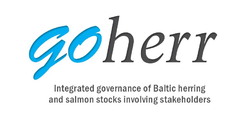Goherr: Relevant literature/Dioxins
Reports
HELCOM (2004). Dioxins in the Baltic Sea.
Scientific articles
Airaksinen, R., Hallikainen, A., Rantakokko, P., Ruokojärvi, P., Vuorinen, P. J., Parmanne, R., Verta, M., Mannio, J., Kiviranta, H. (2014). Time trends and congener profiles of PCDD/Fs, PCBs, and PBDEs in Baltic herring off the coast of Finland during 1978-2009. Chemosphere, 114, 165–71. doi:10.1016/j.chemosphere.2014.03.097
Assefa, A. T., Sobek, A., Sundqvist, K. L., Cato, I., Johnsson, P., Tysklind, M., & Wiberg, K. (2014). Temporal Trends of PCDD/Fs in Baltic Sea Sediment Cores Covering the 20th Century. Environmental Science & Technology, 48 (2), 947–953. DOI: 10.1021/es404599z
Assefa, A. T., Tysklind, M., Sobek, A., Sundqvist, K. L., Geladi, P., & Wiberg, K. (2014). Assessment of PCDD/F Source Contributions in Baltic Sea Sediment Core Records. Environmental Science & Technology, 48 (16), 9531–9539. DOI: 10.1021/es502352p
Assmuth, T. (2011). Policy and Science Implications of the Framing and Qualities of Uncertainty in Risks: Toxic and Beneficial Fish from the Baltic Sea. Ambio, 40 (2), 158–169. doi:10.1007/s13280-010-0127-z
Hites, R. A. (2011). Dioxins: An Overview and History. Environmental Science & Technology, 45 (1), 16-20. DOI: 10.1021/es1013664
Kulkarni, P. S., Crespo, J. G., & Afonso, C. a M. (2008). Dioxins sources and current remediation technologies - A review. Environment International, 34 (1), 139–153. doi:10.1016/j.envint.2007.07.009
Miller, A., Hedman, J. E., Nyberg, E., Haglund, P., Cousins, I. T., Wiberg, K., & Bignert, A. (2013). Temporal trends in dioxins (polychlorinated dibenzo-p-dioxin and dibenzofurans) and dioxin-like polychlorinated biphenyls in Baltic herring (Clupea harengus). Marine Pollution Bulletin, 73 (1), 220–30. doi:10.1016/j.marpolbul.2013.05.015



